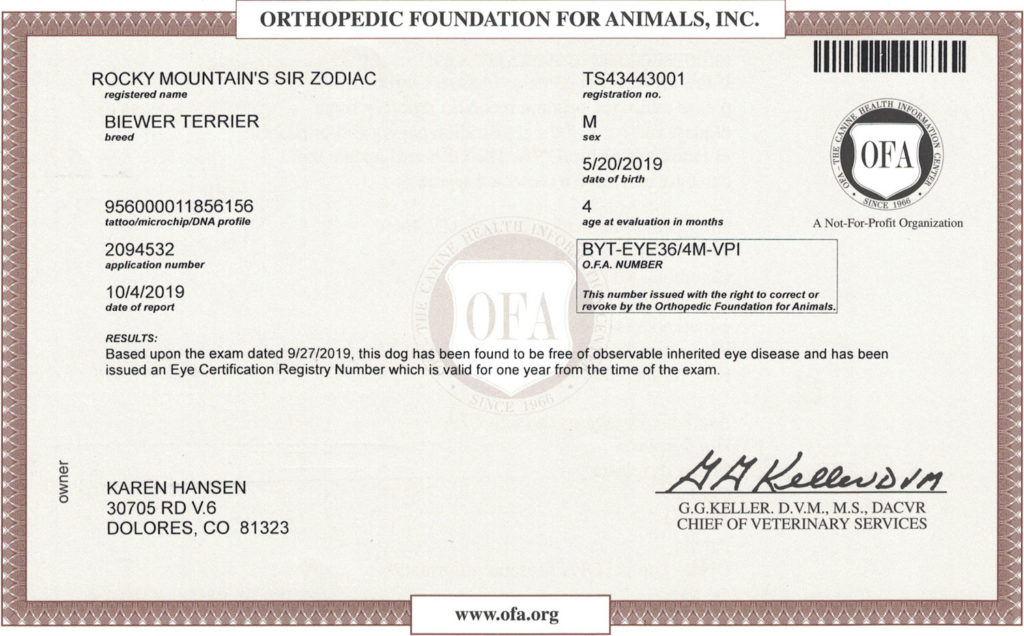The CERF (Canine Eye Registration Foundation) eye test is an examination performed by a board-certified veterinary ophthalmologist to assess a dog’s eye health and screen for hereditary eye diseases. The CERF test is a crucial tool for breeders and pet owners to identify eye conditions that may affect a dog’s vision or overall health and make informed decisions regarding breeding.
During the Canine Eye Registration Foundation test, the veterinary ophthalmologist will use specialized equipment to examine the dog’s eyes, checking for abnormalities in structures like the cornea, iris, lens, vitreous, and retina. The test is non-invasive and typically does not require sedation or anesthesia.
Some of the hereditary eye diseases that the CERF test screens for include:
- Progressive Retinal Atrophy (PRA)
- Collie Eye Anomaly (CEA)
- Cataracts
- Retinal dysplasia
- Primary Lens Luxation (PLL)
- Glaucoma
- Persistent Pupillary Membranes (PPM)
It’s important to note that a CERF test provides a snapshot of the dog’s eye health at the time of the examination. Some eye conditions may develop later in life, so it’s recommended to perform CERF tests annually or biannually, depending on the breed and the risk of developing certain eye diseases.
The results of the Canine Eye Registration Foundation test are submitted to the Canine Eye Registration Foundation, which maintains a registry of tested dogs. This registry helps breeders track eye health in their breeding lines and assists researchers in studying the prevalence and inheritance patterns of eye diseases in dogs.

